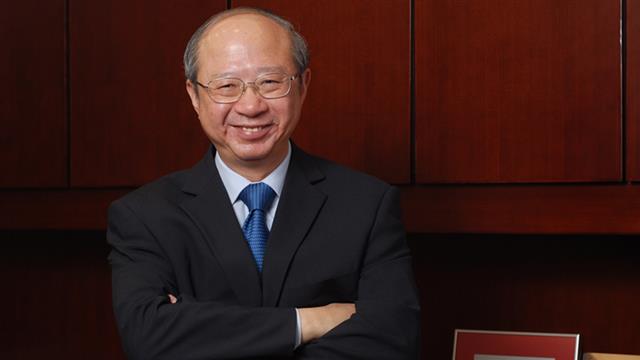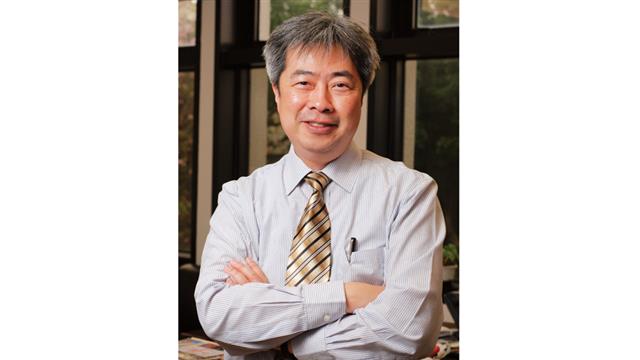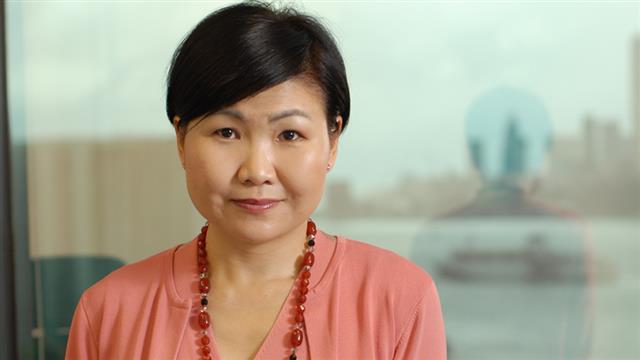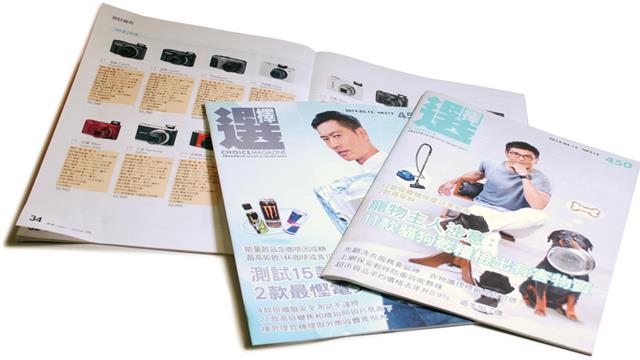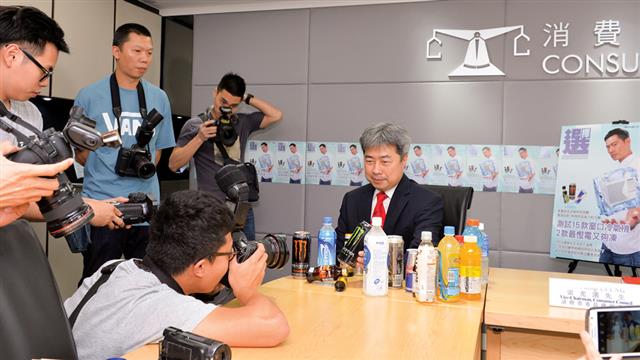The 15th of every month is the day that Choice is published. Hong Kong citizens are eager to know the results of the product test that will be carried in this magazine of the Consumer Council. The media also expect to glean information from it for their stories. You can spot several familiar faces of CUHK members in news pictures or footage of the press conferences held by the council.
Prof. Hui King-man Michael, Pro-Vice-Chancellor, and Mr. Leung Kwong-hon Philip, Director of Information and Technology Services, are busy executives of the University, but they are also important members of this trusted advocacy organization that focuses on defending consumer rights. Mr. Leung is the vice-chairman of the Consumer Council, while Professor Hui is a member of the council and the chairman of its Publicity and Community Relations Committee. Its chief executive Ms. Wong Fung-han Gilly, who works closely with them, is a CUHK alumna majoring in business administration.
Mr. Philip Leung was invited by the council to serve as a co-opted member in 2006 to advise on information system upgrading. He said he was happy to oblige as it called for his professional expertise. He was appointed by the government as a member of the council in January 2007, and as its vice-chairman in 2013. Mr. Leung said that he was not a spender himself and knew nothing about the marketplace. But he was willing to learn by doing and to serve the community.
Prof. Michael Hui, Professor of Marketing, joked that he did not know why the Consumer Council would want him on board. But consumption and marketing are closely related. He said that many CUHK members had served the council. Prof. Chan Chi-fai Andrew was its chairman; Prof. Ching Pak-chung, Pro-Vice-Chancellor, and now retired Prof. Ho Suk-ching were its members; CUHK alumni Mrs. Chan Wong Shui Pamela and Ms. Lau Yin-hing Connie were its former chief executives.
Ms. Gilly Wong has extensive experience in the fields of property rental, credit cards, information technology, electricity, and tourism. She is a good listener and is able to think in the position of traders. She had worked for five years in the Hong Kong Tourism Board to promote conventions and exhibitions. This experience has equipped her with the ability to know the ropes of a trade or a profession in a very short time, laying a solid foundation for her current position.
These three CUHK members have good teamwork in the Consumer Council. Gilly Wong described the other two as mentors-cum-friends. 'Professor Hui is very amiable. He always gives me prompt, precise and sound advice. He has rich experience in business management and a wide vision, and hits the nail on the head when analysing problems. Philip is an IT expert and an experienced administrator, an easygoing guy who is always willing to take on additional responsibilities. He's provided us with valuable advice on how to facilitate the development of the council by adopting new technologies. I've learned a lot from both of them.'
Thorough Preparation for Press Conference
In addition to the two or three council, committee or working group meetings, assuming the role of spokesperson at the monthly press conference is a core task of the two gentlemen. About a week before the conference, a product test report will be sent to the spokesperson, who has to study it, familiarize himself with the press release and the tips for answering questions in the Q&A session. Professor Hui described the press release as a summary of the product test report. 'We have to extract some kernels from it and put ourselves in the public's shoes to predict what journalists will ask. We can field any question if we can refine the essence to the right degree.'
Involving science and technology, product tests are something not easily comprehensible by a layman. So, the spokesperson has to get the gist, and explain the main points in simple terms for journalists to report to the general public. On the day before this interview took place, Mr. Philip Leung released a report on pet food. The core message is that harmful substances were found in some of the cat foods and dog foods sold locally, and long-term consumption could increase the risk of certain health problems. Professor Hui said that it would be enough if this message could get across to ordinary citizens. 'Pet owners will read the report in detail. Those who don't have a pet now will keep this knowledge in mind, which may come in handy someday. Then we achieve what we want to achieve with the press conference.'
Mr. Leung admitted the tight schedule produces butterflies in the stomach. 'You have to properly prepare for the task. When it involves chemical terms, such as melamine and cyanuric acid, you have to know well what they are and how they affect human health. You have to take in more information to boost your confidence.' As their teammate, Ms. Wong said that they've made progress every time they meet the media. They were a little bit tense at first. But now they handle the situation with ease.
Consumer Awareness and Mentality
The Consumer Council receives tens of thousands of complaints every year. Professor Hui sees it positively. 'Getting more complaints doesn't necessarily mean that Hong Kong has more unscrupulous businessmen. That may reflect the fact that consumers know more about their rights and there are more channels for lodging complaints.' Are Hong Kong consumers terrible complainants? Does the Consumer Council side with the consumers only?
'Hong Kong people rank high in terms of awareness of consumer rights. Most of them are reasonable consumers,' said Gilly Wong. 'The council's emblem is a scale. At the two sides of the scale are consumers and business environment. We uphold fairness and justice when advocating a policy or ordinance that protects consumer interests. We'll study the business environment and consult stakeholders. When mediating disputes, we'll first see whether the demands of the consumers are legitimate, whether traders' product claims are misleading, or whether there is any miscommunication.'
What is the major trap for consumers? Professor Hui gave a rational analysis: Is your purchase motivated by real needs, or by a bargain? 'This bargain hunting mentality is the biggest trap. If you really need a product or service, whether it is a good bargain or not should not be your major consideration. People in Hong Kong and the whole China embrace bargain hunting. This mentality is the root of a lot of problems. Rights don't come without a price tag. The “no questions asked” return policy in western countries goes hand in hand with their consumers' willingness to pay a reasonable price. What they buy is not just goods, but also concomitant guarantees.'
Learning from Public Service
Philip Leung decided to get involved in public service because he believed he had something to contribute. But it turned out that he gained more than he gave. 'Consumption is everyday life. Buying a can of luncheon meat, a packet of instant noodles, clothes, services are all acts of consumption. I've worked at the University for several decades. I don't even need to leave the campus for lunch. The people I deal with are either students or teaching and administrative staff. I feel as if I'm living in an ivory tower if I don't get venture outside. Participating in Consumer Council's work helps me know more about ordinary people's lives. I've seen the most unreasonable businessmen and consumers, a lot of webs of interests, and familiarized myself with market trends and legal protection of consumers. We receive requests for advice and complaints from time to time in the University. But they're nothing compared to the diabolic culture of complaint that I've seen off campus. Learning how to handle them and how to explain the limits of our abilities is valuable lesson for me.'
According to Gilly Wong, the council is an ever-learning public body. 'We have to keep ourselves abreast of the needs and behavioural patterns of consumers, and stay one step ahead of them. We need to allocate resources to the research of consumption patterns, consumer sentiment index, and get to know new products, and keep an eye on the latest trade practices.' The triennial plan of the council includes several aggressive goals, namely, completion of an in-depth study of the practices of certain trades and industries, development of an online platform for providing consumers with information and getting from them data about consumer behaviour, and promotion of the concept of sustainable consumption.
When asked about the most exciting recent developments in the area of consumer protection, they all mentioned the Trade Descriptions (Unfair Trade Practices) (Amendment) Ordinance, the Residential Properties (First-hand Sales) Ordinance, and the Competition Ordinance passed in 2012. These three far-reaching ordinances directly or indirectly provide protection for consumers, and help to create a level playing field for traders to develop and compete. Relevant publicity and education campaigns, enforcement guidelines, and amendments are what the Consumer Council will focus on in the years to come.


